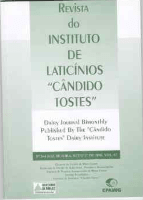
Journal of Candido Tostes Dairy Institute
Scope & Guideline
Fostering Collaboration for Dairy Excellence
Introduction
Aims and Scopes
- Dairy Production and Processing:
Research focusing on the methods and technologies used in the production and processing of dairy products, including studies on fermentation, microbial activity, and physicochemical properties. - Quality Control and Safety:
Investigations into the microbiological quality of dairy products, as well as methods for ensuring safety and quality in dairy production, including the influence of environmental factors and production practices. - Consumer Preferences and Sensory Analysis:
Studies that explore consumer perceptions, sensory characteristics, and preferences for dairy products. This includes sensory evaluation and market analysis of various dairy products. - Functional and Nutritional Properties of Dairy Products:
Research on the nutritional benefits and functional properties of dairy products, including studies on probiotics, antioxidants, and the health implications of dairy consumption. - Innovation in Dairy Products:
Exploration of novel dairy products and their characteristics, such as lactose-free options, probiotic beverages, and the application of nanotechnology in dairy science.
Trending and Emerging
- Probiotic and Fermented Dairy Products:
There is a notable increase in research focused on probiotics and fermented dairy products, highlighting their health benefits and consumer interest in functional foods. - Sustainability and Waste Management:
Emerging themes include the treatment of liquid effluents in the dairy industry, reflecting a growing awareness of sustainability and environmental impact in dairy production. - Consumer Behavior and Market Trends:
Research on consumer preferences and perceptions regarding dairy products is gaining traction, emphasizing the importance of understanding market dynamics and consumer choices. - Nanotechnology Applications in Dairy:
The application of nanotechnology in dairy, particularly in encapsulation techniques, is a trending area, showcasing innovation and potential for enhancing product quality.
Declining or Waning
- Traditional Dairy Practices:
Research focusing on traditional methods of dairy production and processing appears to be waning, with fewer studies published on conventional techniques compared to innovative approaches. - General Microbiological Studies:
While microbiological quality is still a focus, broad studies without specific applications or innovations are less frequent, indicating a shift towards more targeted research that connects microbiology with practical applications. - Water Quality in Dairy Production:
Investigations related to the quality of water used in dairy processing are less prevalent, suggesting a reduced emphasis on this aspect compared to other pressing issues in dairy science.
Similar Journals
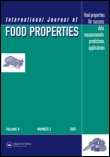
INTERNATIONAL JOURNAL OF FOOD PROPERTIES
Innovating through research in food properties.INTERNATIONAL JOURNAL OF FOOD PROPERTIES, published by TAYLOR & FRANCIS INC, is a leading platform for disseminating high-quality research in the field of food science. With an ISSN of 1094-2912 and E-ISSN of 1532-2386, this journal has been committed to open access since 2018, ensuring that groundbreaking studies are readily available to global audiences. The journal has steadily gained recognition for its contribution to the discipline, achieving a Q2 ranking in Food Science and placing in the 68th percentile among its peers according to Scopus metrics. Covering a wide array of topics related to the properties and applications of food, it serves as a valuable resource for researchers, professionals, and students alike. With coverage extending from 1998 to 2024, the journal continually seeks to advance knowledge and foster innovation within the food science community, making it a pivotal publication for anyone serious about this vital field.

International Food Research Journal
Nurturing Interdisciplinary Dialogue in Food StudiesThe International Food Research Journal, published by UNIV PUTRA MALAYSIA PRESS, serves as a pivotal platform for disseminating innovative research within the field of food science. With an ISSN of 1985-4668 and an E-ISSN of 2231-7546, the journal has successfully established its presence since its inception in 2007, converging its findings through 2024. This esteemed journal holds a Q3 ranking in Food Science, illustrating its valuable contributions to the field as demonstrated by its Scopus rank of 276 out of 389, placing it in the 29th percentile among its peers in Agricultural and Biological Sciences. Although it operates under a traditional publishing model, its academic integrity and focus on high-quality research ensure that it remains a vital resource for researchers, professionals, and students eager to explore advances in food technology, nutrition, and safety. By encouraging interdisciplinary collaboration and critical dialogue, the International Food Research Journal plays an essential role in shaping the future of food science research.
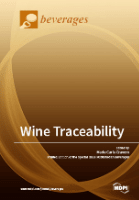
Beverages
Pioneering Research for a Better Beverage ExperienceBeverages is a premier open access journal published by MDPI, dedicated to the study of all aspects related to beverages, including their production, consumption, sensory properties, and health implications. Since its inception in 2015, the journal has established a notable presence in the field of Food Science, currently ranking in Q2 according to the latest 2023 category quartiles. With an ISSN of 2306-5710, it provides a platform for researchers, professionals, and students to share innovative research and insights that can advance the understanding and quality of beverage-related science. As an open access journal, Beverages ensures wide accessibility to its content, fostering collaboration and dissemination of knowledge across the global academic community. Based in Basel, Switzerland, the journal embodies a commitment to high-quality research and impactful contributions to the beverage industry and academia.
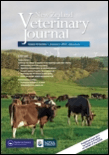
NEW ZEALAND VETERINARY JOURNAL
Elevating veterinary science with impactful insights.NEW ZEALAND VETERINARY JOURNAL, published by Taylor & Francis Ltd, stands as a pivotal platform in the realm of veterinary science, contributing significantly to the global discourse on animal health and welfare since its inception in 1952. With an ISSN of 0048-0169 and an E-ISSN of 1176-0710, this journal offers invaluable insights within both the veterinary and general medical fields, currently achieving a commendable Q2 ranking in Veterinary (miscellaneous) and Q3 in Medicine (miscellaneous) for 2023. Its Scopus ranking places it in the 76th percentile among veterinary journals, affirming its high-impact presence in academia. While access to this journal is not open, it maintains an essential role for researchers, professionals, and students aiming to advance their knowledge and contribute to the field of veterinary science. With a commitment to disseminating quality research, NEW ZEALAND VETERINARY JOURNAL enriches the understanding of veterinary practices and enhances ongoing dialogue on critical health issues affecting animals, promoting better outcomes through scientific inquiry.

Applied Food Research
Fostering Sustainable Practices Through Research ExcellenceApplied Food Research, published by Elsevier, is an esteemed journal that plays a critical role in advancing the field of Food Science. With an ISSN of 2772-5022, the journal has established itself as a premier outlet for high-quality research, achieving a commendable Q1 ranking in the 2023 Food Science category and a 63rd percentile in Scopus rankings for Agricultural and Biological Sciences. Covering a diverse range of topics from food safety to innovative processing techniques, Applied Food Research seeks to publish pioneering studies that enhance our understanding of food systems and contribute to broader discussions on sustainability and nutrition. As it converges on its fourth year of publication, researchers, professionals, and students alike are encouraged to engage with its content through various open access options, ensuring widespread dissemination of knowledge in a field that is vital to global health and well-being. Operating out of Amsterdam, Netherlands, this journal is poised to be an indispensable resource for anyone dedicated to making significant contributions in the domain of food science.

INTERNATIONAL JOURNAL OF DAIRY TECHNOLOGY
Connecting researchers and practitioners in dairy technology.International Journal of Dairy Technology, published by Wiley, serves as a pivotal platform for advancing research and innovation within the field of dairy science and technology. Established in 1947, this esteemed journal has garnered a significant impact factor, reflecting its influential role in disseminating critical findings and fostering discourse among professionals, researchers, and students alike. With a distinguished ranking in Q2 across several categories including Bioengineering, Food Science, and Process Chemistry and Technology, it remains integral to the academic community, demonstrating high visibility and relevance. Researchers can access a wealth of open-access content, enhancing the sharing of knowledge within the discipline. The journal’s commitment to exploring emerging trends, innovative practices, and comprehensive analyses of dairy technology ensures that it remains at the forefront of advancements in this vital area of food science and engineering.
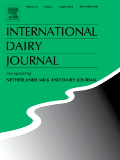
INTERNATIONAL DAIRY JOURNAL
Advancing dairy science through innovative research.INTERNATIONAL DAIRY JOURNAL, published by Elsevier Science Ltd, is an esteemed peer-reviewed journal dedicated to advancing knowledge in the diverse and vital fields of Applied Microbiology and Biotechnology and Food Science. With an ISSN of 0958-6946 and E-ISSN of 1879-0143, this journal plays a crucial role in disseminating research findings from 1991 to 2024 and is consistently recognized for its impact, evidenced by its placement in the Q2 quartile for Applied Microbiology and Biotechnology and Q1 for Food Science in 2023. Rated at the 79th percentile in Food Science and the 68th percentile in Applied Microbiology, it serves as a vital resource for researchers, professionals, and students worldwide. Although the journal does not currently offer open access, its rigorous publication standards ensure that each article significantly contributes to the understanding of dairy science and technology, fostering innovation and application in the dairy industry.
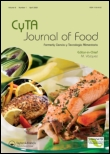
CyTA-Journal of Food
Advancing food science for a sustainable future.CyTA-Journal of Food is a prestigious academic journal published by TAYLOR & FRANCIS LTD, dedicated to advancing the field of food science and technology through the dissemination of innovative research and practical knowledge. With an ISSN of 1947-6337 and an E-ISSN of 1947-6345, this journal stands out with its strong impact factor and is currently placed in the Q2 quartile across multiple categories, including Chemical Engineering, Chemistry, and Food Science, making it a vital resource for researchers and professionals alike. The journal has been an integral part of the academic community since its inception in 2009, and continues to publish cutting-edge articles through to 2024. Its alignment with Scopus ranks further signifies its influence, notably achieving 67th percentile in Industrial and Manufacturing Engineering. As an Open Access journal, it ensures widespread accessibility to its valuable content, promoting collaboration and knowledge sharing among scientists, engineers, and students dedicated to enhancing food safety, quality, and sustainability.

Animal Bioscience
Championing Open Access in Animal ResearchAnimal Bioscience is a premier journal dedicated to advancing the field of animal science, published by the esteemed ASIAN-AUSTRALASIAN ASSOCIATION OF ANIMAL PRODUCTION SOCIETY. With an impactful presence in South Korea, this journal serves as a pivotal platform for disseminating high-quality research in animal production, nutrition, genetics, and veterinary sciences. Its notable standing is reflected in its categorization within the Q1 quartile for Animal Science and Zoology and Veterinary (miscellaneous) disciplines, highlighting the journal's dedication to excellence and relevance. Additionally, Animal Bioscience has secured impressive rankings in various related fields, with a 94th percentile position in general veterinary studies. As an Open Access publication, it encourages broad distribution and engagement with its content, making significant contributions to the global discourse surrounding animal technology and welfare. This journal is an invaluable resource for researchers, professionals, and students aiming to deepen their understanding and promote innovations in animal biosciences.
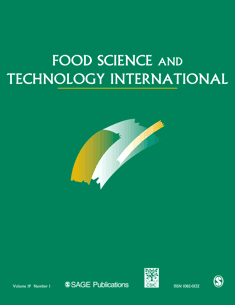
FOOD SCIENCE AND TECHNOLOGY INTERNATIONAL
Advancing innovation in food science and technology.FOOD SCIENCE AND TECHNOLOGY INTERNATIONAL, published by SAGE Publications Ltd, is a premier journal in the fields of food science and technology, serving as a crucial platform for the dissemination of innovative research and practical applications from 1995 through to 2024. With an impact factor reflecting its significant standing—ranking in the Q2 quartile for Chemical Engineering, Food Science, and Industrial and Manufacturing Engineering—this journal plays an instrumental role in advancing the interdisciplinary study of food systems. Researchers, professionals, and students can access high-quality contributions that address the latest developments and trends in food technology, safety, and processing. Located in the United States, FOOD SCIENCE AND TECHNOLOGY INTERNATIONAL also boasts commendable Scopus rankings, ensuring its articles are both relevant and widely cited within the academic community. As a vital resource for anyone engaged in food science research, этот журнал fosters knowledge sharing and innovation in the ever-evolving landscape of food technology.